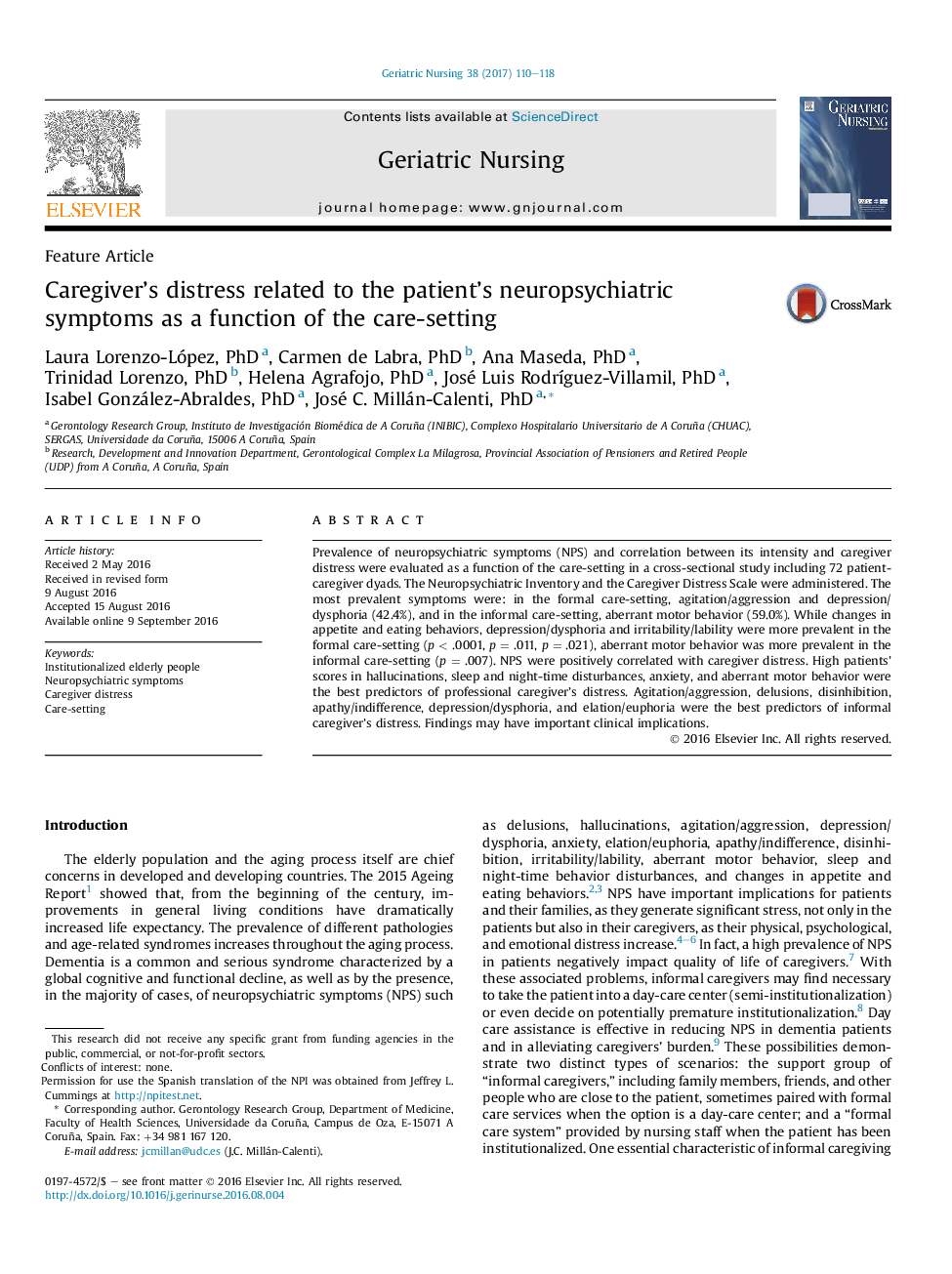| Article ID | Journal | Published Year | Pages | File Type |
|---|---|---|---|---|
| 5567996 | Geriatric Nursing | 2017 | 9 Pages |
Prevalence of neuropsychiatric symptoms (NPS) and correlation between its intensity and caregiver distress were evaluated as a function of the care-setting in a cross-sectional study including 72 patient-caregiver dyads. The Neuropsychiatric Inventory and the Caregiver Distress Scale were administered. The most prevalent symptoms were: in the formal care-setting, agitation/aggression and depression/dysphoria (42.4%), and in the informal care-setting, aberrant motor behavior (59.0%). While changes in appetite and eating behaviors, depression/dysphoria and irritability/lability were more prevalent in the formal care-setting (p < .0001, p = .011, p = .021), aberrant motor behavior was more prevalent in the informal care-setting (p = .007). NPS were positively correlated with caregiver distress. High patients' scores in hallucinations, sleep and night-time disturbances, anxiety, and aberrant motor behavior were the best predictors of professional caregiver's distress. Agitation/aggression, delusions, disinhibition, apathy/indifference, depression/dysphoria, and elation/euphoria were the best predictors of informal caregiver's distress. Findings may have important clinical implications.
